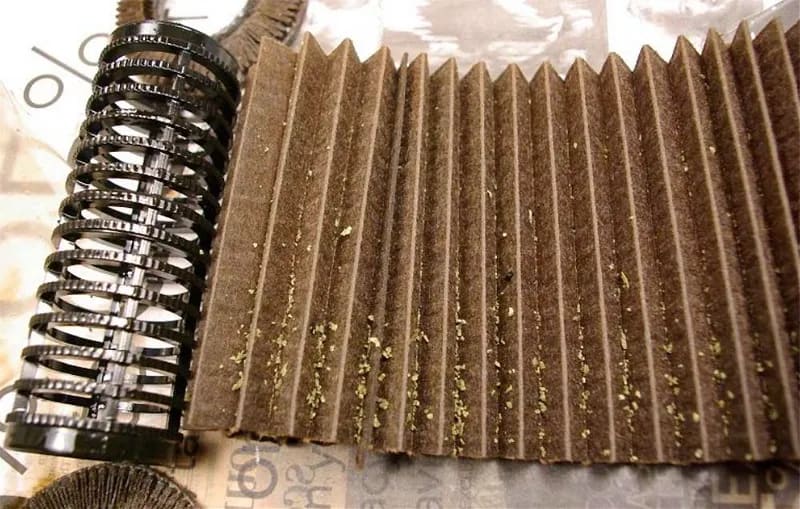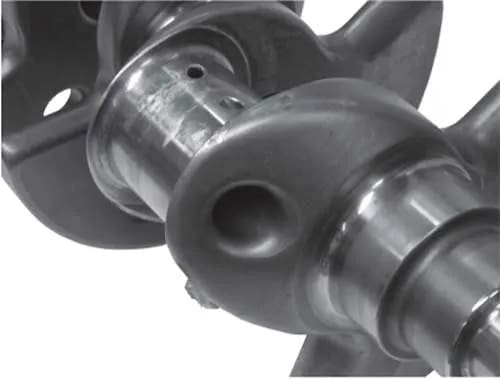What Is Brake Fluid?
What is brake fluid? Learn more about the basics of brake fluid and how to monitor it and more with automotive training at UTI!
Regular maintenance checks are critical for your vehicle.
They can prevent your vehicle from having problems or can help you detect them as soon as they happen.
One of these problems? Metal shavings in oil. These contaminants can pollute your oil and damage the engine, causing a ton of issues that cost lots of money and time.
So, what causes metal shavings to get into oil, and what can you do about it? Keep reading to get the answer!
The oil in your vehicle passes through and around a lot of moving parts. Given the speed of these moving parts and the amount you use your engine, some metal is bound to slowly chip off over time. This is a part of normal engine wear.
The oil filter is responsible for catching metal flakes. This is why it’s key to check and replace the oil and the oil filter on a regular basis.

Image credit: 986forum.com
Engine bearings (including the main, connecting rod, small-end and camshaft bearings) are often bi-metal or tri-metal structures. A low-friction surface (brass, copper or aluminum) bonded to a steel backing allows for longevity and efficiency. This multiple-material composition can help technicians locate the cause of metal shavings in oil.
If the shavings are nonmagnetic, failed engine bearings are the cause. If the particles in the oil are magnetic, the problem could be the bearing backing material or steel from the crankshaft or other engine components.

Familiarizing yourself with how your car handles and starts every time you get behind the wheel can help you notice when something is off. Some signs of metal shavings in oil include:
Metal shavings in oil can scratch and gouge the crankshaft journals and bearings and its components as they pass between them.

They can also block or restrict oil passages. Restricted oil passages will drop oil pressure and flow to critical engine components, which can lead to premature engine failure.
Some metal shavings in oil are OK, especially for a newer engine. However, an excessive amount of metal shavings in oil or metal shavings that are newly discovered after an engine has been broken may indicate damage.
Prevention is key. So, when it comes to metal shavings in oil, replace the oil and oil filter regularly to reduce the risk of metal flakes in oil causing issues for your engine.
Read: What Is Parasitic Battery Drain?
Metal shavings in oil are primarily caused by normal engine wear, where moving parts like bearings and crankshafts chip off small metal particles over time. Other causes include bearing damage and improper maintenance.
The most common sources of metal contamination include metal chipping from engine wear and bearing damage. These particles can come from the engine's various moving parts or the breakdown of bi-metal and tri-metal structures in bearings.
Ignoring metal shavings in oil can lead to serious damage, such as scratching and gouging of the crankshaft journals and bearings. Over time, this may result in blocked oil passages, reduced oil pressure, premature engine failure and costly repairs.
Regularly checking and changing both your oil and oil filter can significantly reduce the risk of metal flake buildup. Preventive maintenance ensures contaminants are removed before they cause major damage to your engine.
Signs of excessive metal in oil include reduced engine power, ticking noises, rough idles, engine knocking, white exhaust fumes and the check engine warning light turning on. Addressing these symptoms promptly is crucial and can prevent more severe engine issues.
Read: Transmission Fluid Color Guide (with Chart)
If you’d like to learn more about automotive systems, training from Universal Technical Institute (UTI) can help. Whether you want to use this knowledge to work on your own car or are considering a career in the auto techindustry, the Automotive Technology program at UTI can get you the training you need.1
The 51-week program covers the maintenance and repair of all kinds of vehicles and takes you through a range of systems.7 The Physical Science & Technology Principles: Automotive Engines & Repair course specifically discusses how the oil system works, which can help you prevent the buildup of metal shavings in your oil.33
Interested in finding out more? Our Admissions Representatives are happy to help. Request more information online or call us at 1-800-834-7308.
Universal Technical Institute of Illinois, Inc. is approved by the Division of Private Business and Vocational Schools of the Illinois Board of Higher Education.